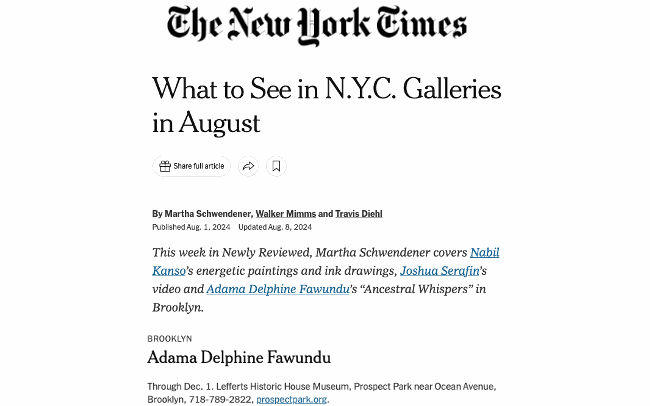A charming antique farmhouse sits on the edge of Prospect Park in Brooklyn, laden with a not-so-charming history. In the 18th- and 19th centuries, enslaved Africans worked the land and performed domestic labor. We know some of their names and even their birth dates — the 1800 census included 12 enslaved Africans at this location — but Adama Delphine Fawundu, a Brooklynite and the first artist in residence at the Lefferts Historic House Museum, goes much deeper. “Ancestral Whispers,” her carefully researched installation, both inside and outside the house, serves as a memorial and celebration of the enslaved people who lived here.
Inside, placards offer specific information about them. Nero became a free man and died in the Civil War. Isaac escaped and perhaps set up a new life in Manhattan. Flora was a cook and a herbalist, but also “supposedly enjoyed a good joke, loved cats, and was deeply spiritual.”
Mantels lined with plants and candles create an ad hoc shrine to these individuals. Outside the house, nylon banners printed with textile patterns and photographs are hung along the porch facing Flatbush Avenue. This is, for me, the most beautiful part of the show, but a giant cape displayed inside the house — a quilt-like object titled “In the Face of History Freedom Cape” (2020) and dedicated to Black suffragists and political pioneers like Shirley Chisholm — argues for a more pragmatic way of shaping the present and future: Vote!
56
de 224


